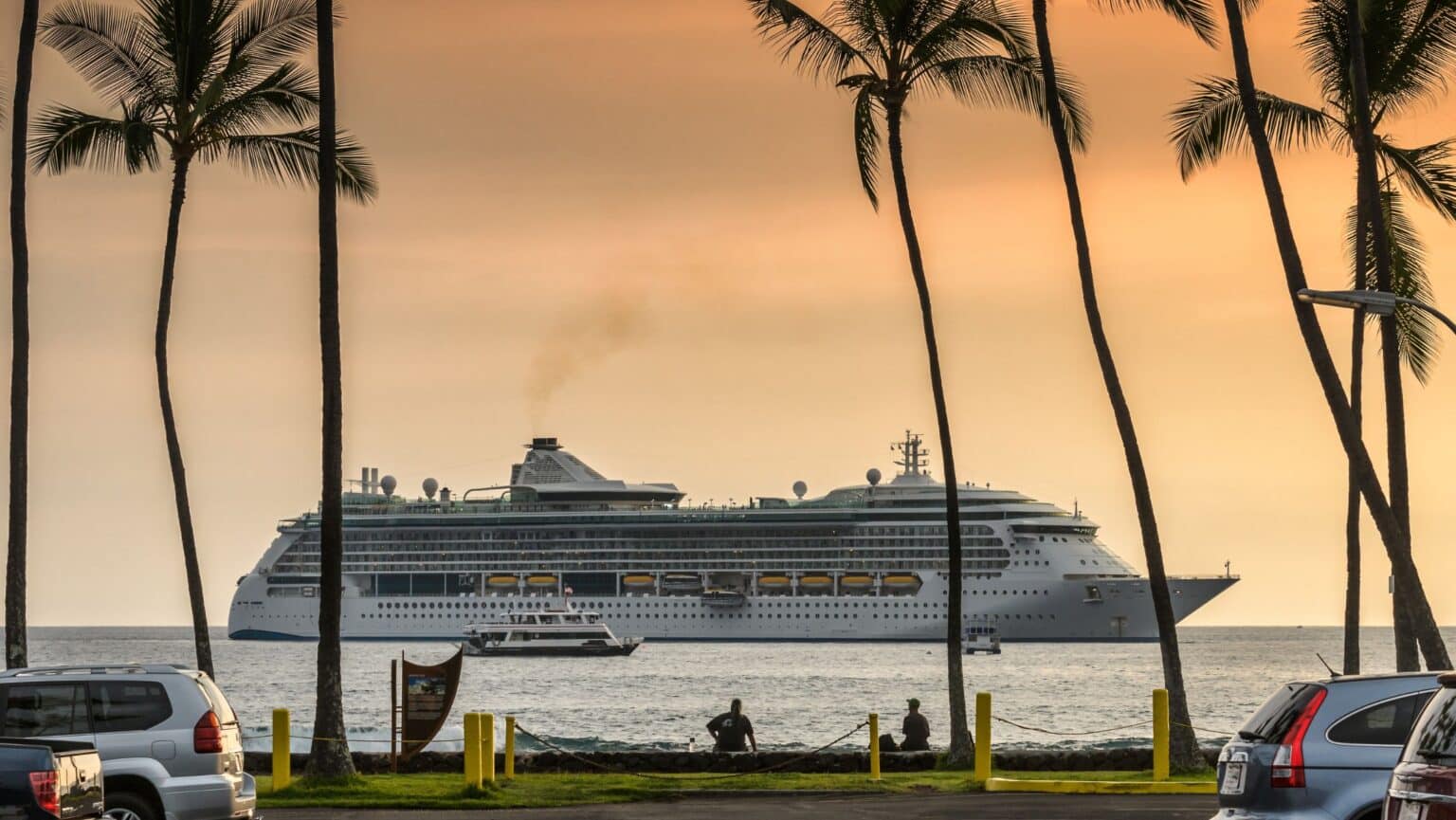- Hawaii has announced a new plan to reduce cruise ship calls on the island, aiming for a 75% reduction by 2035.
- This will be a gradual process, initially aiming to cut calls by 50%.
- At the same time, the island is attempting to impose a new tax on cruise passengers, which is now being challenged by the cruise industry
The Hawaiian Department of Transportation says it is planning to significantly cut cruise visits to the islands as part of a larger effort to reduce carbon emissions.
The plan involves reducing cruise ship visits by up to 50%.
At the same time, the island’s plans for a new tax is being challenged by Cruise Lines International Association, which has issued plans to sue the state of Hawaii, claiming proposed cruise fees are a ‘blatant violation’ of the constitution.
It has made the State of Hawaii, the Hawaii Department of Taxation, the County of Kauai, the City and Council of Honolulu, the County of Maui, and the County of Hawaii defendants in the lawsuit.
Said CLIA in a statement: “The cruise industry opposes the extension of Hawaii’s Transient Accommodations Tax to cruise ship passengers. We believe the extension violates both the U.S. Constitution and federal law, while imposing an additional financial burden on passengers already subject to substantial fees and taxes.”
According to the lawsuit, the cruise ship industry draws nearly 300,000 annual visitors to Hawaii, supporting thousands of jobs throughout the state and contributing more than $600 million a year to the economy.
The tax would make Hawaii cruises too expensive, and potential visitors will choose to vacation elsewhere, the lawsuit maintains.
The plaintiffs, in a motion seeking a preliminary injunction to declare the law’s cruise-related provisions unconstitutional and bar its enforcement, urges a judge to act swiftly because cruise-ship passengers typically make travel plans well in advance. A hearing is scheduled for Oct. 31.
The impending surcharge “will begin to skew the market even before they take effect,” causing families who would have purchased Hawaii cruise tickets in 2026 to make other vacation plans, the motion said.
The new law adds 0.75% to the existing 10.25% tax on daily hotel and vacation room stays for a 11% total. Hawaii’s counties each add their own 3% surcharge, and the state and counties impose a combined 4.712% general excise tax on goods and services including hotel rooms. Together, that will make for a hotel and vacation rental tax rate of nearly 19%.
On the environmental curbs, Hawaii’s Department of Transportation said in the report that unlike cargo vessels, “cruise ships primarily serve tourism and, while they contribute to the economy, they do not necessarily enhance core economic sectors such as hotels, domestic air travel, or local services.”
Reducing their number would result in environmental benefits.
The plan also stipulates that any remaining cruise vessels will be required to operate on low, or zero-emission fuels.”
“With cruise ships accounting for over 22 percent of marine sector emissions, reducing total cruise ship calls by 50 percent by 2030 and 75 percent by 2035, along with a 75 percent reduction in large cruise ships (over 3,000 passengers) by 2030, is projected to lower emissions by 56,000 metric tons of CO2e by 2030 and 82,000 metric tons by 2045.”








